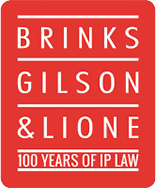On September 27, 2018, the U.S. Supreme Court agreed to hear the copyright dispute between a technology company, Oracle, and a software business, Rimini Street, directed to the issue of whether the U.S. Copyright Act’s allowance of “full costs” to a prevailing party includes non-taxable costs.
The dispute between Oracle and Rimini Street first arose in 2010 when Oracle filed suit in federal district court under the Copyright Act claiming that Rimini Street downloaded Oracle’s database support materials without a license. The district court awarded Oracle close to $20 million in costs as part of a $124 million verdict after a jury found that Rimini Street copied Oracle’s software and infringed 93 Oracle copyrights. Rimini Street argued that $12.8 million of those costs could not be awarded because they cover non-taxable costs.
While litigants are generally required to pay their own attorney’s fees under the American rule, U.S. law permits reasonable costs to be awarded to a prevailing party. The general cost statutes, 28 U.S.C. §§ 1920 and 1821 (implemented through Federal Rule of Civil Procedure 54), provide six categories of costs that may be awarded to the prevailing party: (1) fees of the clerk and marshal; (2) fees for printed or electronically recorded transcripts; (3) fees and disbursements for printing and witnesses; (4) fees for exemplification and costs of making copies of materials; (5) docket fees; and (6) compensation of court appointed experts, compensation of interpreters, and salaries, fees, expenses and costs of special interpretation services. However, in copyright cases, Section 505 of the Copyright Act provides that “the court in its discretion may allow the recovery of full costs by or against any party.” 17 U.S.C. § 505.
Given that the general cost statutes only identify six categories of taxable costs while the Copyright Act references “full costs,” the federal appellate courts have split in their interpretation of whether the award of costs under the Copyright Act is limited to the categories of costs in the general cost statutes. For example, the Eighth and Eleventh Circuits have limited copyright awards to taxable costs under the cost statutes, while the Ninth Circuit has routinely held that an award of costs can cover a larger list of nontaxable costs, such as expert fees, consultant fees and electronic discovery costs. This split can have meaningful economic consequences, such as in this dispute, where the recovery of “non-taxable costs” involves more than $17 million, including $8 million in electronic discovery expenses and $7.8 million in expert fees.
The Supreme Court’s decision in this case may have significant implications for copyright litigants. Not only will it provide national uniformity for particular categories of costs, but it also may clearly define entitlement to recovery of expenses necessary to litigate copyright disputes, such as the electronic discovery and expert fees involved in this case. To be sure, the high court’s ruling in this case will influence copyright litigants’ future decision-making, including whether, and for how long, they should pursue copyright claims given the possibility of post-victory recovery of expenses that must be incurred to litigate these disputes.



 />i
/>i
